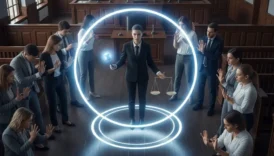Revocable Trust: Simple Definition and Meaning

- Revocable Trust: Simple Definition and Meaning
- What Is a Revocable Trust?
- Legal Basis
- Examples
- Family Estate Planning
- Married Couples
- Retirement Planning
- Why a Revocable Trust Matters
- FAQ For Revocable Trust
- How does a revocable trust differ from an irrevocable trust?
- Does a revocable trust avoid probate?
- Are assets in a revocable trust protected from creditors?
- Who manages a revocable trust?
- Why are revocable trusts popular in estate planning?
What Is a Revocable Trust?
Simple definition of a revocable trust: it is a legal arrangement that allows the creator (grantor) to manage and control assets during their lifetime, with the flexibility to alter, amend, or revoke the trust at any time. In legal terms, a revocable trust provides a way to transfer property to beneficiaries while avoiding probate, but it does not shield assets from creditors during the grantor’s life.
Legal Basis
A revocable trust is governed by state trust laws and contract principles. Since the grantor retains the right to change or dissolve the trust, it is not considered a permanent transfer of ownership.
Courts recognize revocable trusts as valid estate planning tools, but they also allow creditors to reach trust assets because the grantor maintains control. This balance ensures both flexibility for individuals and legal protection for third parties with legitimate claims.
Examples
Revocable trusts are commonly used in estate planning.
Family Estate Planning
Parents may create a revocable trust to manage property and ensure assets pass smoothly to children without probate.
Married Couples
Spouses often establish joint revocable trusts to manage shared property, giving both partners control during their lifetimes.
Retirement Planning
An individual may place retirement accounts or investments into a revocable trust to simplify management and designate future beneficiaries.
Why a Revocable Trust Matters

A revocable trust matters because it offers flexibility and control. The grantor can change beneficiaries, modify terms, or dissolve the trust entirely as life circumstances evolve. Unlike irrevocable trusts, it does not permanently transfer control, making it a highly adaptable estate planning tool.
Additionally, revocable trusts streamline the inheritance process by bypassing probate, saving time and costs for beneficiaries. However, they do not provide strong asset protection, which is why some individuals later convert them into irrevocable trusts for greater security.
FAQ For Revocable Trust
How does a revocable trust differ from an irrevocable trust?
A revocable trust can be modified or revoked by the grantor at any time, while an irrevocable trust cannot be easily changed once created. Revocable trusts prioritize flexibility, whereas irrevocable trusts focus on asset protection and tax benefits. The choice depends on whether control or long-term protection is more important for the grantor’s goals.
Does a revocable trust avoid probate?
Yes, one of the main benefits is probate avoidance. Assets placed into the trust pass directly to beneficiaries upon the grantor’s death without going through the probate court. This saves time, reduces costs, and maintains privacy. However, proper funding of the trust is necessary to achieve this benefit.
Are assets in a revocable trust protected from creditors?
No, because the grantor retains control, assets in a revocable trust remain accessible to creditors. Courts treat the trust as an extension of the grantor’s estate during their lifetime. Only after the grantor’s death do assets transfer directly to beneficiaries, offering limited protection at that stage. For stronger protection, an irrevocable trust is required.
Who manages a revocable trust?
The grantor usually serves as the initial trustee, maintaining control over the assets. A successor trustee is named to take over management if the grantor becomes incapacitated or passes away. This ensures continuity and smooth transition without requiring court intervention. Properly naming and instructing a successor trustee is vital for effective administration.
Why are revocable trusts popular in estate planning?
They combine flexibility, control, and efficiency, making them ideal for individuals who want to manage assets during life and simplify inheritance afterward. Revocable trusts bypass probate, allow for updates as circumstances change, and provide clear instructions for asset distribution. This adaptability explains their widespread use in modern estate planning strategies.






